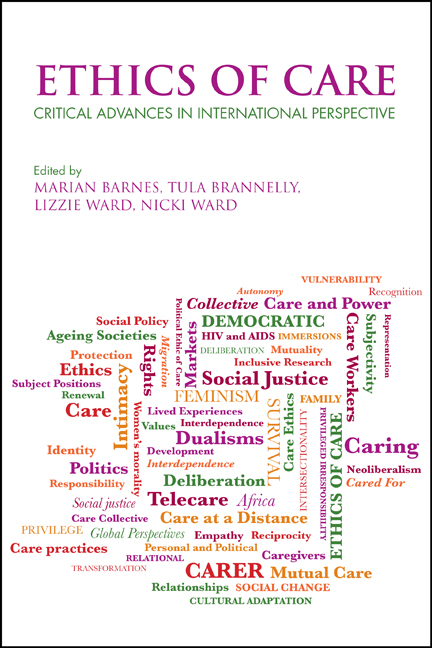Sixteen - Care for carers: care in the context of medical migration
Published online by Cambridge University Press: 08 March 2022
Summary
Introduction
In March 2014, a 37-year-old Romanian anaesthesiologist killed herself in the French hospital where she was working. She left behind a six-year-old son and a loving husband. It does not seem that there were any problems in her personal life. However, she worked too hard. Her colleagues said she had to work 78 hours during the last week before her death and that she was drained and missed spending time with her family (Gervais, 2014). One day it all became too much for her and she ended her life. Her case is not exceptional. At first glance, doctors have the power and knowledge to bring other people's lives back on track, but they are also human beings who, when placed in a different context of life and work, will increasingly become more fragile, interdependent and in need of care.
Doctors as care givers are themselves a part of the complex web of care (Fisher and Tronto, 1990; Barnes, 2012a, p 40; Tronto, 2013, p 19) that connects individuals and families to each other and other members of society. In the case of migration, this web is torn apart as a result of the decision to move and the factors that may influence that decision. This may put migrant doctors in a different situation, in need of care themselves. To identify the care needs of migrant doctors I concentrate on three types of vulnerabilities connected to medical migration: professional, personal and socio-cultural.
Are migrant doctors privileged in comparison to other migrant workers? They are, after all, not ‘illegal’, and they receive a good salary that allows doctors to move to the destination country with their families and to not struggle with poverty. When I started an empirical study about medical migration from Romania to the UK (2010–14) I imagined that I would find people who would tell me about how having a well-paid job and a high social status in the UK had positively changed and enhanced their lives. But I discovered an unexpected range of social, professional and emotional problems, and people who were not well integrated and who were in need of care.
- Type
- Chapter
- Information
- Ethics of CareCritical Advances in International Perspective, pp. 207 - 218Publisher: Bristol University PressPrint publication year: 2015



